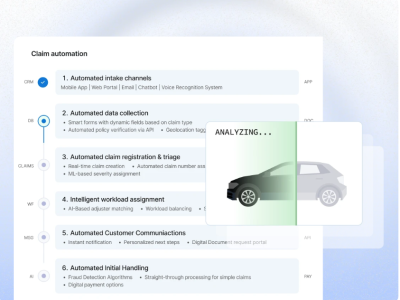In the dynamic landscape of talent acquisition, recruiting software has become an indispensable tool for businesses seeking to streamline their hiring processes and attract top-tier talent. However, with a plethora of options available, finding the right recruiting software that aligns with your business needs can be a challenging task. In this blog, we will explore key considerations and strategies to help you find the best recruiting software for your organization.
1. **Define Your Needs and Objectives:**
Before diving into the sea of recruiting software options, take the time to clearly define your organization’s specific needs and objectives. Identify the pain points in your current hiring process and determine the features that will address those challenges. Whether it’s applicant tracking, resume parsing, or interview scheduling, a clear understanding of your requirements will guide you toward a software solution that complements your goals.
2. **User-Friendly Interface and Accessibility:**
A user-friendly interface is crucial for the successful adoption of any software. Look for recruiting solutions that are intuitive, easy to navigate, and require minimal training. Additionally, consider the accessibility of the software. Cloud-based solutions that offer flexibility for both in-house and remote teams ensure seamless collaboration and efficient workflow management.
3. **Integration Capabilities:**
The best recruiting software seamlessly integrates with your existing HR and workflow systems. Integration capabilities are essential for maintaining data consistency and reducing manual data entry. Look for software that can integrate with popular platforms such as HRIS, CRM, or other tools you regularly use. This ensures a cohesive and integrated talent acquisition process.
4. **Automation Features:**
Automation is a game-changer in recruiting. Look for software that automates repetitive tasks such as resume screening, interview scheduling, and communication with candidates. Automation not only saves time but also reduces the likelihood of human error, allowing your team to focus on more strategic aspects of the hiring process.
5. **Advanced Analytics and Reporting:**
Data-driven decision-making is vital in talent acquisition. Choose a recruiting software that provides robust analytics and reporting features. This allows you to track the performance of your recruitment efforts, measure the effectiveness of different sourcing channels, and identify areas for improvement. Advanced analytics empower you to optimize your hiring strategies for better outcomes.
6. **Candidate Experience:**
The candidate experience is a reflection of your employer brand. Ensure that the recruiting software you choose enhances the candidate journey. Features such as mobile-friendly application processes, automated status updates, and easy communication channels contribute to a positive candidate experience, which, in turn, attracts top talent to your organization.
Finding the best recruiting software for your business involves a thoughtful evaluation of your needs, a user-centric approach, and consideration of advanced features that align with your objectives. By investing in the right recruiting software, your organization can transform its talent acquisition processes, streamline operations, and gain a competitive edge in attracting and retaining top-notch talent. Remember, the right tool is not just a solution; it’s an investment in the future success of your business.








